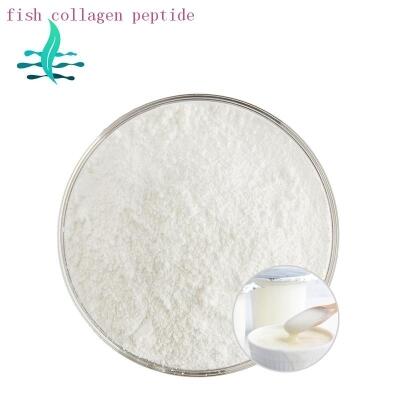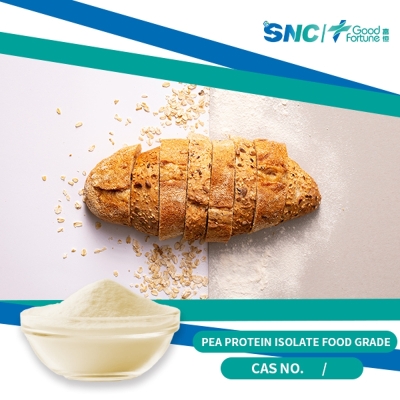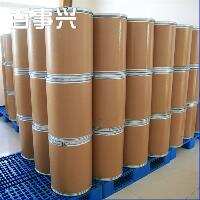Glutamate New Opportunities: Opening New Markets or Walking Out
-
Last Update: 2020-07-03
-
Source: Internet
-
Author: User
Search more information of high quality chemicals, good prices and reliable suppliers, visit
www.echemi.com
data show that the total fermentation capacity of glutamate in China is close to 1.6 million tons, accounting for about 75% of the global glutamate production capacity, while Japan's glutamate production capacity, including Japan's flavor co., Ltdin the domestic and overseas branch capacity, including the total capacity of less than 600,000 tons, South Korea's glutamate fermentation capacity of 200,000 to 250,000 tonsCoupled with the glutamate fermentation capacity in Taiwan, it can be argued that the Asian glutamate manufacturers basically dominate the international glutamate marketat the same time, China has also overtaken Japan as the world's largest exporter of MSG (sodium glutamate)And Western countries gradually change the concept of the use of MSG, estimated that the future glutamate market will be a big positivethe collapse of the "MSG harmful theory"despite the long-standing anti-consumption of MSG in Western countries, such as some western researchers in previous years claimed that MSG, like aspartame, is a neuroagonized product, will have adverse effects on the human body, such as some Americans eat in local Chinese restaurants after hand shaking, facial redness and sweatingMedical researchers believe this is a symptom caused by too much MSG in the dish, but Western scholars can't explain why so many Chinese eat in restaurants every day in China, without any Chinese customers having a hand shake and facial redness after a mealIn fact, Westerners do not have the same habits as Those of The East, such as China, Japan and South Korea, who have the habit of putting MSG in their dishes, and the Easterners are more resistant to MSG than WesternersBut sales of MSG in western markets have been rising steadily over the past 20 years as the "east wind fades"The main reason is not that Western households are also using MSG as a seasoning, but that the Western food processing industry has become the largest user of MSGNow the Western food industry has long been used to a variety of processed foods in the shemlet, because MSG is the most inexpensive and beautiful flavor agentAccording to a new report in Japan's Food Industry Journal, the U.SMSG market has grown at an annual rate of more than 10 percent over the past decade, with total MSG sales estimated to have exceeded 200,000 tons last yearBy contrast, European demand for MSG is far less than that of Asians or AmericansBut experts at the Japan Fermentation Association estimate that the total sales volume of the European MSG market last year will not be less than 100,000 tons, possibly 130,000 to 140,000 tonscan say that MSG has long since emerged from the previous "MSG harmful theory" in Western countries and become an extremely common condiment the average annual growth rate is higher than Japan
China's MSG production history is relatively long, the earliest use of the production process is the grain hydrolysis method, but the law will produce a large number of waste water and cause great pollution to the environment In the early 1950s, Japan pioneered a new process for the production of glutamate using industrial microbial fermentation, which replaced the gage process It was not until 1965 that a new way of production of glutamate was realized in China As the world's largest food production country, starch in China not only low price and can ensure supply, and starch as the production of glutamate starting raw materials, its price is far lower than glutamate powder, therefore, the popularity of the new law in China still has a greater advantage in the following years, the use of "short glutamate bar-like bacillus" for industrial microorganisms and starch as the starting material of fermentation method to produce glutamate in the country rapidly spread the new process According to the domestic fermentation association experts reported that in the past 40 years, China's MSG industry average annual growth rate of 17% From the national MSG production point of view, before 1965, China's total output of MSG but a few thousand tons, and in 2005 China's total OUTPUT of MSG has reached a staggering 1.18 million tons, a full increase of nearly 300 times in 40 years Even Japan, the birthplace of THE world's MSG, has not been growing at such a high rate According to the estimates of the relevant domestic departments, by 2005, China's MSG production and glutamate fermentation capacity are accounted for 3/4 share of the global production of similar products strong to find another way
because MSG for micro-profit products, only the larger the scale of production, manufacturers can really make a profit, and the scale of less than 20,000 tons is difficult to make a profit In 2002, there were 140 glutamate fermentation plants in the country, most of which had an annual fermentation capacity of less than 20,000 tons; news that China's total MSG production last year has exceeded 1.7 million tons, the export volume for the first time exceeded 100,000 tons and became China's export volume of the first to reach 100,000 tons of amino acid products but from the current international market situation, Japan still has a monopoly on the international MSG market As the world's largest glutamate fermentation enterprises, Japan's misomeumeume Co., Ltd., has long adopted the "going out" strategy, the use of Brazil, Vietnam, Indonesia and other major sugar cane producers in the world after the production of a large number of by-products - molasses as raw materials fermentation production of glutamate, its cost is said to be much lower than China's starch fermentation method to produce glutamate costs China's MSG production is higher than Japan, but has been mainly domestic sales, export until now has not been better According to Japan's Journal of Fermentation and Industry, last year the annual production of the local MSG in Japan has shrunk to more than 100,000 tons, while the output of its overseas subsidiaries is increasing year by year, such as: its Brazilian branch of MSG annual production has been close to 200,000 tons, Vietnam branch of The annual production of MSG has exceeded 80,000 tons, the Indonesian branch OF MSG production is estimated to be 50,000 tons facing an aggressive offensive from the overseas branch of Japan's MSG, china's MSG export momentum has been hampered in recent years To this end, the state has reduced the export tax rate on sodium glutamate to zero and has taken other measures to encourage exports Recently, China's largest MSG production enterprises Henan Lotus Group has cooperated with the Japanese side to introduce The Japanese corn starch fermentation glutamate new technology to improve the yield of glutamate, and ultimately can reduce production costs, enhance the competitiveness of products in the international market It is reported that lotus brand MSG has been the European Union, the United States and dozens of other countries import license, can be sold in the above-mentioned countries although China is already the world's largest producer of glutamate and sodium glutamate exporter, but because Japan has a long history of exports and firmly control the United States and European markets, its influence is far greater than ours, it is conceivable that China's MSG products in Europe and the United States to compete for market share may be difficult, therefore, the author believes that in the future, China's MSG export enterprises to stand firm, only to expand the export of MSG to Russia, Ukraine, Belarus, Bulgaria, Romania, Poland, Hungary and other Eastern European countries data show that the total fermentation capacity of glutamate in China is close to 1.6 million tons, accounting for about 75% of the global glutamate production capacity, while Japan's glutamate production capacity, including Japan's flavor co., Ltd in the local and overseas branch capacity, including the total capacity of less than 600,000 tons, South Korea's glutamate fermentation capacity of 200,000 to 250,000 tons Coupled with the glutamate fermentation capacity in Taiwan, it can be argued that the Asian glutamate manufacturers basically dominate the international glutamate market at the same time, China has also overtaken Japan as the world's largest exporter of MSG (sodium glutamate) And Western countries gradually change the concept of the use of MSG, estimated that the future glutamate market will be a big positive the collapse of the "MSG harmful theory" despite the long-standing anti-consumption of MSG in Western countries, such as some western researchers in previous years claimed that MSG, like aspartame, is a neuroagonized product, will have adverse effects on the human body, such as some Americans eat in local Chinese restaurants after hand shaking, facial redness and sweating Medical researchers believe this is a symptom caused by too much MSG in the dish, but Western scholars can't explain why so many Chinese eat in restaurants every day in China, without any Chinese customers having a hand shake and facial redness after a meal In fact, Westerners do not have the same habits as Those of The East, such as China, Japan and South Korea, who have the habit of putting MSG in their dishes, and the Easterners are more resistant to MSG than Westerners But sales of MSG in western markets have been rising steadily over the past 20 years as the "east wind fades" The main reason is not that Western households are also using MSG as a seasoning, but that the Western food processing industry has become the largest user of MSG Now the Western food industry has long been used to a variety of processed foods in the shemlet, because MSG is the most inexpensive and beautiful flavor agent According to a new report in Japan's Food Industry Journal, the U.S MSG market has grown at an annual rate of more than 10 percent over the past decade, with total MSG sales estimated to have exceeded 200,000 tons last year By contrast, European demand for MSG is far less than that of Asians or Americans But experts at the Japan Fermentation Association estimate that the total sales volume of the European MSG market last year will not be less than 100,000 tons, possibly 130,000 to 140,000 tons can say that MSG has long since emerged from the previous "MSG harmful theory" in Western countries and become an extremely common condiment the average annual growth rate is higher than Japan
China's MSG production history is relatively long, the earliest use of the production process is the grain hydrolysis method, but the law will produce a large number of waste water and cause great pollution to the environment In the early 1950s, Japan pioneered a new process for the production of glutamate using industrial microbial fermentation, which replaced the gage process It was not until 1965 that a new way of production of glutamate was realized in China As the world's largest food production country, starch in China not only low price and can ensure supply, and starch as the production of glutamate starting raw materials, its price is far lower than glutamate powder, therefore, the popularity of the new law in China still has a greater advantage in the following years, the use of "short glutamate bar-like bacillus" for industrial microorganisms and starch as the starting material of fermentation method to produce glutamate in the country rapidly spread the new process According to the domestic fermentation association experts reported that in the past 40 years, China's MSG industry average annual growth rate of 17% From the national MSG production point of view, before 1965, China's total output of MSG but a few thousand tons, and in 2005 China's total OUTPUT of MSG has reached a staggering 1.18 million tons, a full increase of nearly 300 times in 40 years Even Japan, the birthplace of THE world's MSG, has not been growing at such a high rate According to the estimates of the relevant domestic departments, by 2005, China's MSG production and glutamate fermentation capacity are accounted for 3/4 share of the global production of similar products strong to find another way
because MSG for micro-profit products, only the larger the scale of production, manufacturers can really make a profit, and the scale of less than 20,000 tons is difficult to make a profit In 2002, there were 140 glutamate fermentation plants in the country, most of which had an annual fermentation capacity of less than 20,000 tons; news that China's total MSG production last year has exceeded 1.7 million tons, the export volume for the first time exceeded 100,000 tons and became China's export volume of the first to reach 100,000 tons of amino acid products but from the current international market situation, Japan still has a monopoly on the international MSG market As the world's largest glutamate fermentation enterprises, Japan's misomeumeume Co., Ltd., has long adopted the "going out" strategy, the use of Brazil, Vietnam, Indonesia and other major sugar cane producers in the world after the production of a large number of by-products - molasses as raw materials fermentation production of glutamate, its cost is said to be much lower than China's starch fermentation method to produce glutamate costs China's MSG production is higher than Japan, but has been mainly domestic sales, export until now has not been better According to Japan's Journal of Fermentation and Industry, last year the annual production of the local MSG in Japan has shrunk to more than 100,000 tons, while the output of its overseas subsidiaries is increasing year by year, such as: its Brazilian branch of MSG annual production has been close to 200,000 tons, Vietnam branch of The annual production of MSG has exceeded 80,000 tons, the Indonesian branch OF MSG production is estimated to be 50,000 tons facing an aggressive offensive from the overseas branch of Japan's MSG, china's MSG export momentum has been hampered in recent years To this end, the state has reduced the export tax rate on sodium glutamate to zero and has taken other measures to encourage exports Recently, China's largest MSG production enterprises Henan Lotus Group has cooperated with the Japanese side to introduce The Japanese corn starch fermentation glutamate new technology to improve the yield of glutamate, and ultimately can reduce production costs, enhance the competitiveness of products in the international market It is reported that lotus brand MSG has been the European Union, the United States and dozens of other countries import license, can be sold in the above-mentioned countries although China is already the world's largest producer of glutamate and sodium glutamate exporter, but because Japan has a long history of exports and firmly control the United States and European markets, its influence is far greater than ours, it is conceivable that China's MSG products in Europe and the United States to compete for market share may be difficult, therefore, the author believes that in the future, China's MSG export enterprises to stand firm, only to expand the export of MSG to Russia, Ukraine, Belarus, Bulgaria, Romania, Poland, Hungary and other Eastern European countries (Sukwe)
This article is an English version of an article which is originally in the Chinese language on echemi.com and is provided for information purposes only.
This website makes no representation or warranty of any kind, either expressed or implied, as to the accuracy, completeness ownership or reliability of
the article or any translations thereof. If you have any concerns or complaints relating to the article, please send an email, providing a detailed
description of the concern or complaint, to
service@echemi.com. A staff member will contact you within 5 working days. Once verified, infringing content
will be removed immediately.







